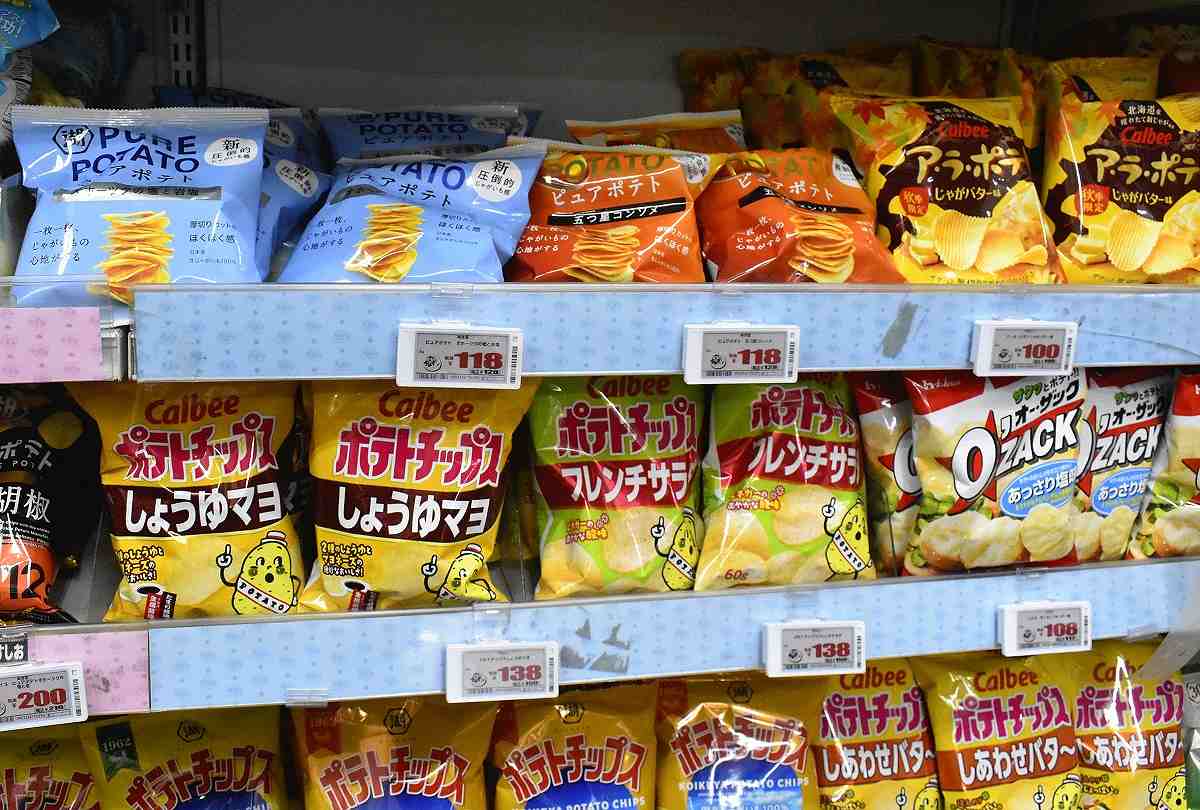
A variety of snacks are on display at Don Quijote’s Nakameguro Honten store in Meguro Ward, Tokyo.
15:04 JST, November 7, 2023
The ongoing price hikes among food and beverage products are showing signs of easing. According to data compiled by Teikoku Databank, Ltd., food and beverage manufacturers in Japan are set to raise the price of 131 items in November — the lowest figure since January 2022.
Many companies increased the prices of their products due to soaring prices of ingredients and other raw materials. Recently, some companies have begun to review their sales strategies in response to declining sales of certain products.
Teikoku Databank’s survey of 195 major food manufacturers showed that they planned to raise prices of a total of 32,189 products in 2023. The prices of 5,639 products rose in February, the largest number so far this year and the figure for October stood at 4,757. The number topped 1,000 in every other month except for January and May, so the November figure is a significant decrease.
The total number of products whose prices are set to rise in 2023 is estimated to be 20% higher than last year. Consumers have expressed concern that the prices of almost all food and beverages have been rising. The number of price hikes were particularly high in the first half of the year, with some months seeing three or four times the number compared to the same month in 2022. But for the four consecutive months from August, the number has been below last year’s figures.
For November, beverages account for 60% of all price hikes. Beverage manufacturer DyDo Drinco, Inc. raised the prices of canned coffee and plastic bottles of barley tea sold in vending machines by ¥10-¥30 for all shipments from Nov. 1.
On the other hand, there will be no price increases for dairy products, such as milk and butter, in November — the first time since January. The number of price hikes of confectionary products this month stands at 18, the lowest this year.
Teikoku Databank says the biggest factor behind the easing of price rises is the improved profitability of companies.
As fuel costs have settled down for the time being, some companies have been able to secure higher profits due to lower than projected utility costs.
The number of products set to carry higher prices tags from January or later currently stands at only 493.
Some food products have seen a drop in sales due to price increases. According to research firm Intage Inc., sales of canola oil and wheat flour declined 40% and 30%, respectively, from two years ago. It has become clear that consumers have grown tired of successive price hikes, seemingly prompting some companies to avoid raising prices again.
Major distributor Aeon Co. has reviewed its strategy. Starting from late September, it reduced the price of 31 items from its own-brand range, TopValu, including salad oil and cup noodles, by up to nearly 20% at supermarkets around the country.
“Customers are being more frugal and it’s represented in the data,” said Aeon President Akio Yoshida. “Sales of products with reduced prices have shown a drastic increase. We believe it’s necessary to provide consumers with a sense of satisfaction by offering both reasonably-priced and premium products.”
Bagikan Berita Ini














0 Response to "Food, Beverage Price Hikes Show Signs of Easing; Fuel Prices ... - The Japan News"
Post a Comment